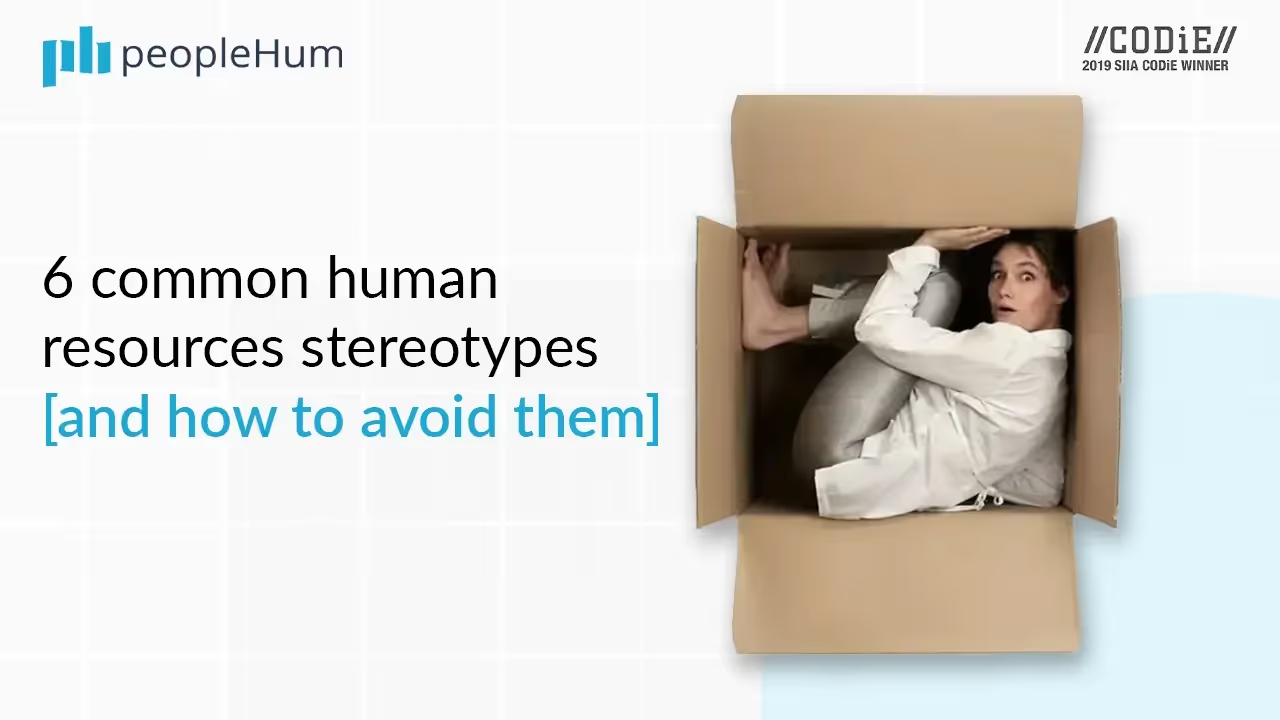"Why does HR have a bad reputation?" If you are aware of Google’s autocompletion game, you'll end up finding the most common HR stereotypes within the drop of a hat!
Firstly, when you simply ask a vague question like ‘How does’ or ‘Why is’, Google spares no effort to hunt and expose the world and everything that it is searching for. But the real fun begins when you get precise about your next word. When I typed, ‘Why does human resources...', Google ended up showing me search results that were apparently, as one may say, funny HR stereotypes.

Now the first question doesn’t really reveal if it favours HR or the people who wonder why is there any need (at all) for HR to exist. These are same people who inquire "What is the point of HR?" or "Why HR is so incompetent?"
But the second one speaks volumes in comparison to the first. ‘Why does human resources have a bad reputation?’

Sarcasm?
Luckily, yes. But these, ironically, are also the opinions of some. So, if we’re going to talk about the stereotypes, we must understand what those really are.
Stereotypes stems from personal observations, where often bad experiences shape people's views about a certain thing. Now every other profession comes with a reputation of its own, a rapid judgment of character. It’s no different for HR.
What are the 6 common HR stereotypes?
1. “HR only favours the organisation.”
HR (un)fortunately lies on the two sides of the same coin: they exist to protect the organisation from legal problems and to protect employees from being mistreated. Now, the problem arises when the coin flips and the decision is to be made; it is especially tough when employees question the organisation’s stand in the process. In this very moment of truth, HR must commit to one of them and protecting the organisation, by all means, comes first.
Why?
There’s no denying that if the organisation goes down, all of its people are taken down with it. It therefore makes sense for HR to be in favour of the organisation. (This is where employees begin to perceive HR as their opponent.) Cassie Whitlock, director of HR at Bamboo HR, puts it precisely into words:
“HR sits in front of the fan. And the fan is always on. And sooner or later, something is going to hit that fam – whatever it, the rest of the organisation is going to see it coming from HR. Whether or not HR is originally responsible for the issue, HR will take the blame for the fallout.”
2. “HR corrodes company culture instead of growing it.”
Let’s assume you work for a firm that has a fantastic company culture, is transparent in its task and is a nice place to work. Then, an economic change occurs, throwing the company's finances into disarray. This decline was triggered by an executive's decision to lay off some employees. Guess who you will call a meeting to hand you the termination letter when this happens? HR.
HR is likely the last step of the offboarding procedure at these critical periods and therefore the bad people. No one seems to blame the CEO for making a poor decision or the economy for the downturn. No, the HR department is the sole decision-maker and basis for a person's termination.
3. “HR doesn’t know anything about the business outside their department.”
One of the human resources stereotypes is that human resource as a department where only paperwork or redundant administrative tasks are completed. They fail to recognise the HR's role in boosting an organization's productivity. “The old stereotyping in HRM was always that they are just there to protect the company, make sure every box is ticked, and every form is filled. ” says Jenna Carson, HR Manager at Music Grotto.
A Harvard MBA graduate who, after being questioned for choosing HR as his career path, said “A new kind of HR professional is emerging to manage the transformed function, someone who deeply understands not only talent-management processes but also an organization’s strategy and business model.”
Michael Schrage, a research fellow at MIT, believes that digital transformation saves HR with an opportunity to rebrand as a resource rather than the department that just ticks off boxes to stay robust.
"You can’t stay a fax machine in a Google world," Schrage said.
4. “HR is the buzzkill.”
Among the common HR stereotypes is that 'HR is the fun police.' But this is because HR is naturally responsible for upholding employment laws & policies. If an employee does violates company policy, then it is the HR department that enforces the consequences.
“It is a misconception that HR is just there to enforce rules. Effective HR departments strike a fine balance between the needs of employees and the goals of the organization.”
Most organizations do not analyse how much HR contributes to the company’s profits. HR is thus often seen as the department that adds to the cost of business and are therefore stereotyped as cost centres, rather than as profit centres.
5. “HR isn't always the best at listening to and addressing employee concerns."
There is a common stereotype that HR only goes through the motions of handling employee complaints without taking any real action to address them. However, it's important to note that sometimes HR may not have enough staff to dedicate to complaints or may not have handled them effectively in the past. HR professionals play a critical role in ensuring a positive and productive work environment, and addressing employee concerns is a key part of that. In fact, many HR professionals have extensive training and experience in conflict resolution, communication, and employee relations, and are well-equipped to handle complex workplace issues.
6. “Technology will replace HR”
The misconception is that technology will completely replace the need for HR professionals, leading to the obsolescence of the HR field. While it's true that technology has transformed many aspects of HR, such as recruitment and performance management, the idea that it will completely replace HR professionals is unfounded. HR is a complex field that requires a range of skills, including interpersonal communication, conflict resolution, and strategic thinking, that technology simply cannot replicate. In fact, many HR professionals are already leveraging technology to enhance their work, such as using HR analytics to inform decision-making and investing in HR tech tools to streamline administrative tasks.
How to avoid these common HR stereotypes? : Note to HR
1. Offer context with every compliance or decision
Instead of responding with ’Why not?’, HR professionals need to abide by the answer, ‘Here’s why.’ Employees will doubt the reasoning behind your organization's policies, even if an HR specialist explains a hundred reasons why a certain behaviour is a compliance risk.
Thus, provide context and reason along with your responses to such queries will help avoid human resources stereotypes.
2. Collaborate with upper management
HR can only guide their company into developing a positive culture, but it is up to the managers and employees to do so. Establishing clear communication between HR and management ensures that employees across your organisation avoid the perception that HR is just concerned with office politics.
3. Make use of the right tools
Using the right employee management software offers a reassurance that your staff regards HR as skilled towards organization’s goals. An automated HR software may help in:
- Sending out employment documentation prior to an employee's first day on the job
- To eliminate uncertainty in disputes, develop a performance management system with software that logs feedback.
- Making it simple for employees to use their paid time off
HR stereotypes are unavoidable. However, when HR strikes the right balance between compliance facilitator, strategic collaborator and employee advocate, it can create an experience that exceeds your employees' expectations and certainly dismantle the common HR stereotypes.




































-min%202.avif)













